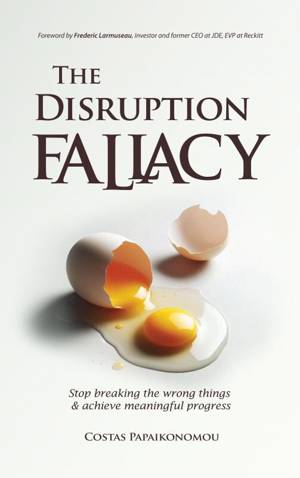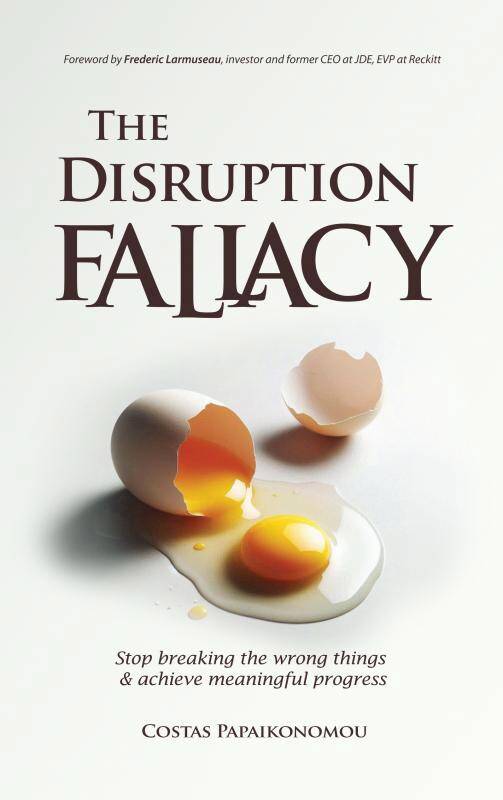
- Afhalen na 1 uur in een winkel met voorraad
- Gratis thuislevering in België vanaf € 30
- Ruim aanbod met 7 miljoen producten
- Afhalen na 1 uur in een winkel met voorraad
- Gratis thuislevering in België vanaf € 30
- Ruim aanbod met 7 miljoen producten
Zoeken
The Disruption Fallacy
Stop Breaking The Wrong Things And Achieve Meaningful Progress
Costas Papaikonomou
Paperback | Engels
€ 19,99
+ 39 punten
Omschrijving
Disruption is the business world’s favorite buzzword, but innovation veteran Costas Papaikonomou calls it a costly fallacy. In his provocative new book, The Disruption Fallacy, he argues that meaningful progress doesn’t come from smashing the system—it comes from working smarter with what’s already there. Aimed at business leaders and particularly manufacturers of everyday consumer goods, this is a wake-up call for an industry drowning in hype.
Papaikonomou, co-founder of Happen Group—a global innovation agency that delivered over $5 billion in revenue growth for clients before its 2019 sale to Accenture—draws on 30 years of hands-on experience and hundreds of successful product launches. From supermarket staples to industrial flops, he’s seen it all. His verdict? “Innovation is a tool, not a goal. Disruption is often just noise that distracts from real results.”
With sharp wit and battle-tested insights, The Disruption Fallacy dismantles the obsession with “move fast and break things.” Papaikonomou offers a better way: practical, low-risk innovation that leverages existing production assets.
Papaikonomou, co-founder of Happen Group—a global innovation agency that delivered over $5 billion in revenue growth for clients before its 2019 sale to Accenture—draws on 30 years of hands-on experience and hundreds of successful product launches. From supermarket staples to industrial flops, he’s seen it all. His verdict? “Innovation is a tool, not a goal. Disruption is often just noise that distracts from real results.”
With sharp wit and battle-tested insights, The Disruption Fallacy dismantles the obsession with “move fast and break things.” Papaikonomou offers a better way: practical, low-risk innovation that leverages existing production assets.
Specificaties
Betrokkenen
- Auteur(s):
- Uitgeverij:
Inhoud
- Aantal bladzijden:
- 168
- Taal:
- Engels
Eigenschappen
- Productcode (EAN):
- 9789465204383
- Verschijningsdatum:
- 21/05/2025
- Uitvoering:
- Paperback
- Afmetingen:
- 135 mm x 215 mm
- Gewicht:
- 213 g

Alleen bij Standaard Boekhandel
+ 39 punten op je klantenkaart van Standaard Boekhandel
Beoordelingen
We publiceren alleen reviews die voldoen aan de voorwaarden voor reviews. Bekijk onze voorwaarden voor reviews.







